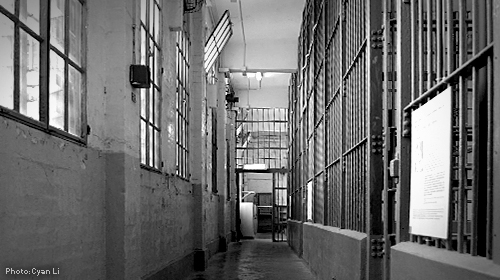
As an academic, itŌĆÖs my job to be a skeptic.
ThatŌĆÖs why, when two researchers at Temple University published a study last year claiming that for-profit prison companies can save states lots of money, I wanted to know how theyŌĆÖd reached their conclusions.
Well, the answer isnŌĆÖt surprising: the for-profit prison industry paid for it.
And weŌĆÖve seen this type of play before.
Industries, companies, and special interest groups often manipulate ŌĆ£factsŌĆØ to cast themselves in a positive light. Whether by funding intellectually dubious studies or running misleading advertisements, many have tried to persuade others to buy products based on deception.
And thatŌĆÖs just what the Corrections Corporation of America (CCA) is trying to do here. The companyŌĆÖs promotional materials continually reference the Temple University study as ŌĆ£independentŌĆØ confirmation of the benefits of private prisons. Moreover, the company uses this study to persuade states to offer them multi-million dollar contracts.
This is problematic on several levels. First, itŌĆÖs unethical to claim a study is ŌĆ£independentŌĆØ when a company pays for favorable results. Second, itŌĆÖs unscrupulous to curry favor with public officials by citing a bought-and-paid-for piece of research. And finally, itŌĆÖs unprofessional for university researchers to publish studies without disclosing their corporate benefactors, as the professors originally did here.
Though an ethics complaint was recently filed against the professors, CCA continues to include the Temple University study in its promotional materials.
Today, in an , IŌĆÖm asking them to stop. According to my analysis, the studyŌĆÖs methodology is misleading and its conclusions are inaccurate.
HereŌĆÖs just one example. In California, CCA has negotiated a deal to house only 8,600 of the youngest, healthiest, and least expensive California prisoners in their out-of-state facilities. Publicly-run facilities, on the other hand, are responsible for housing individuals who are the most expensive to incarcerate and to treat.
The Temple Study looked at the operating costs of CCA versus publicly run facilities, and concluded that CCA is more efficient ŌĆō without acknowledging or taking into account at all the fact that CCA and publicly run facilities each house dramatically different populations with significant differences in their cost of care. The striking differences in prisoner health, age, and cost by facility are indisputable and challenge the very legitimacy of the study that the for-profit prison industry funded and continues to publicize.
This is just one of the many reasons why the Temple University study is worth our scrutiny. You can read a more thorough analysis in my .
Our countryŌĆÖs multi-billion dollar for-profit, private prison industry must stop citing a bought-and-paid-for study that is fundamentally misleading.
Learn more about private prisons and other civil liberty issues: Sign up for breaking news alerts,, and .
